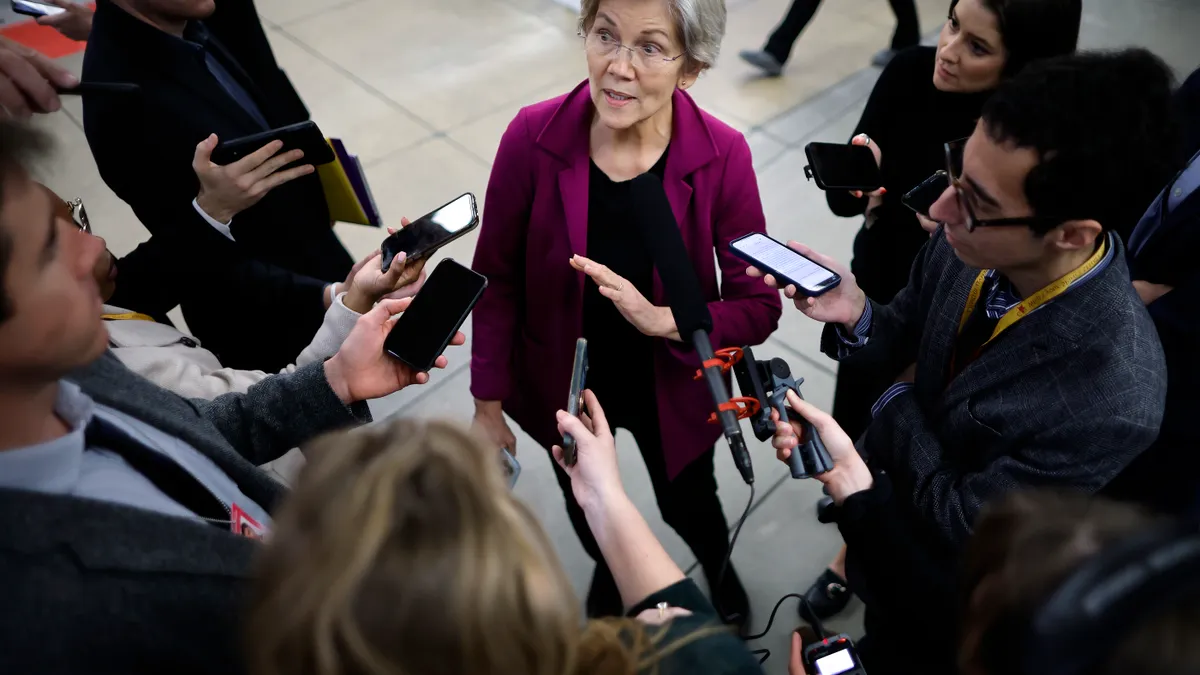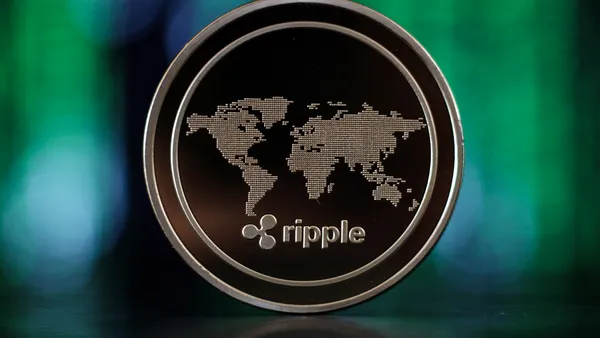Dive Brief:
- A group of seven senators sent letters Tuesday to the CEOs of 10 of the largest U.S. credit card issuers, demanding details about their companies’ late fee practices and citing a Consumer Financial Protection Bureau effort to curtail those fees. They demanded responses by May 23.
- Sens. Elizabeth Warren (D-MA), Sherrod Brown (D-OH), Bernie Sanders (I-VT), Jack Reed (D-RI), Tammy Baldwin (D-WI), Richard Blumenthal (D-CT) and Peter Welch (D-VT) sent letters to the CEOs of JPMorgan Chase, Bank of America, Citi, Wells Fargo, U.S. Bank, PNC, Capital One, American Express, Discover and USAA, asking about the companies’ efforts “to quash that rule.”
- Banks and banking trade groups have pushed back on the CFPB’s February proposal to limit credit card late fees to $8 per payment and ban those fees from being more than 25% of the minimum payment.
Dive Insight:
Consumers have logged thousands of complaints with the CFPB over credit card late fees, the lawmakers wrote in their letters, and the CFPB’s effort aligns with Congress’s aim to shelter consumers from excessive fees.
The senators asked each CEO to specify how much money in credit card late fees is collected annually at their company and what portion of those fees is collected from low-income families; the estimated per-year cost of collecting late credit card payments; and whether they agree with bank lobbyists who contend the change will only harm those it intends to help.
The letters also noted a number of banks have eliminated overdraft fees without increasing costs for consumers.
“How do you reconcile this with the lobby’s argument that consumers will pay the price for limited late fees?” the lawmakers asked.
A spokesperson for U.S. Bank referred to comments from the American Bankers Association on the topic. The ABA asserted this month that the CFPB’s assumptions about the fees are wrong and warned that its policy approach would harm all credit card holders.
“Unlike the Bureau’s mischaracterization of late fees, consumers understand late fees and recognize the importance of late fees in promoting responsible consumer behavior and more efficiently allocating costs,” the trade group argued in a May 3 letter to the CFPB.
The Bank Policy Institute tweeted Tuesday, “There’s a lot wrong with this narrative. Banks support robust consumer protections. And there are a lot of them.”
A spokesperson for Wells Fargo declined to comment. Spokespeople for the other companies didn’t immediately respond to a request for comment.
The CFPB’s proposed amendment to the Card Act of 2009, would also terminate automatic annual inflation adjustments to late fees.
The agency has said its proposed changes would save American families up to $9 billion annually. More than 200 comments on the CFPB proposal were submitted by banks, credit unions, consumer finance organizations and individuals before a May 3 deadline.















